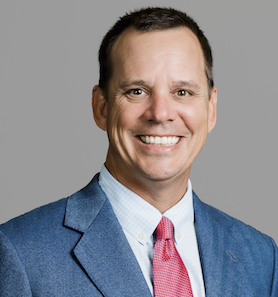legal resources necessary to hold negligent facilities accountable.
Orlando Nursing Home Abuse Lawyer
Confronting nursing home abuse requires an understanding of its various forms, including physical, emotional, and financial exploitation. These forms of abuse not only cause immediate harm but also lead to long-term psychological and economic repercussions for the victims.
Each Orlando nursing home abuse lawyer at Nursing Home Law Center, LLC, specializes in navigating these complex cases, ensuring victims receive the compensation and care they deserve.
 Protecting the Vulnerable
Protecting the VulnerableOrlando nursing home abuse lawyers are at the forefront of protecting some of the most vulnerable members of our community—nursing home residents. Our legal professionals understand that these individuals may be susceptible to various forms of mistreatment due to their age or health conditions. Our lawyers have to ensure that the dignity and rights of these residents are upheld.
Our attorneys recognize that abuse is not always apparent, making the protection of elderly loved ones a complex challenge. We bring to light the silent suffering of elder abuse victims, using our expertise to navigate the intricacies of Florida nursing home abuse cases. Our attorneys strive to make nursing homes in Orlando and Central Florida safer for all through vigilant advocacy and legal prowess.
Understanding the Scope of Nursing Home Abuse in OrlandoOur attorneys understand the devastating impact that abuse and neglect can have on residents. They are well-versed in the various manifestations of abuse, from physical violence to emotional trauma, and the long-term effects these can have on the elderly.
Nursing home negligence, another form of mistreatment, can lead to serious injury or even life-threatening situations for residents. Our law office is dedicated to holding responsible parties accountable and ensuring victims and their families receive full compensation for their suffering.
Orlando, Florida Nursing Home StatisticsIn December 2023, CMS (Centers for Medicare & Medicaid Services) conducted evaluations of the 130 nursing homes in Orlando, Florida. The results are concerning, as approximately 55 of these facilities which represents 42% of the total, received ratings classified as "below average" or "much below average" in terms of overall quality of care, including the following facilities that inspectors have cited for abuse:
- Buffalo Crossings Healthcare & Rehabilitation Center
- Courtyards of Orlando Care Center
- Good Samaritan Society-Kissimmee Village
- Health Central Park
- Healthcare and Rehab of Sanford
- Indigo Manor
- Kissimmee Nursing & Rehabilitation Center
- Lake Harris Health Center
- Lake Mariam Health and Rehabilitation Center
- Lake Wales Wellness and Rehabilitation Center
- Longwood Health and Rehabilitation Center
- Orlando Health and Rehabilitation Center
- Plantation Bay Rehabilitation Center
- Sunrise Point Health and Rehabilitation Center
- The Terrace at Courtenay Springs
- Westminster Winter Park
Our lawyers have seen the widespread nature of elder abuse and understand that this issue is a significant concern within assisted living facilities that requires comprehensive legal action to address effectively.
Elder abuse can occur in both for-profit and not-for-profit nursing homes, with nursing home regulations often being disregarded by negligent caregivers. Nursing home abuse in Orlando manifests in many forms, including:
- Physical abuse
- Financial exploitation
- Sexual abuse
- Psychological abuse
Many factors can lead to neglect and abuse. Our Orlando nursing home abuse lawyer team explores the following contributing factors when building cases, as they can significantly influence the occurrence of abuse:
- Inadequate training of nursing home employees and staff members
- Understaffing
- Stressful environment
Negligent medical professionals in Orlando nursing facility settings may not provide necessary medical care and attention, leading to preventable conditions like bed sores. Our nursing home abuse attorneys know that such neglect is unacceptable and work diligently to ensure that staff members are adequately trained and that residents receive the care they deserve.
Recognizing the Signs of Nursing Home Negligence and AbuseRecognizing the signs of nursing home abuse and neglect is critical in taking the first steps to protect Orlando nursing facility residents. Our attorneys provide essential guidance to family members who suspect nursing facility abuse. With their extensive knowledge, our lawyers empower families to act swiftly to protect their elderly loved ones.
Identifying Physical and Emotional SignsMany victims suffer significant harm at the hands of nurses, nurse aides, visitors, and other residents in various ways, including:
- Physical signs of abuse, such as unexplained injuries, broken bones, or frequent trips to the emergency room, can be red flags that prompt further investigation by our law firm.
- Emotional signs, including withdrawal or a sudden change in mood, may also indicate that a resident is suffering from abuse or neglect.
Our lawyers are skilled at correlating these signs with potential underlying abuse, taking an intentional act to protect the resident.
The Subtleties of Nursing Home NegligenceNeglect in nursing homes can often be subtle, making it difficult for family and friends to detect. We diligently investigate these subtleties, understanding that neglect can lead to serious health issues and that nursing home employees may be responsible for failing to provide the resident's basic needs or medical attention.
- Inadequate Monitoring: Neglect can manifest when staff fail to monitor residents properly, leading to unnoticed injuries or health issues.
- Medication Errors: Subtle errors in medication administration can have severe consequences, affecting residents' well-being.
- Emotional Abuse: Neglect is not limited to physical harm; it can also involve emotional trauma, which can be challenging to detect but equally harmful.
- Delayed Care: Nursing home negligence can involve delayed responses to residents' needs, potentially exacerbating their conditions.
- Unsanitary Conditions: Neglect can lead to unclean and unsanitary living conditions, posing health risks to residents.
- Financial Abuse: Sometimes, subtle signs of neglect involve financial exploitation, where residents' assets are mismanaged or stolen.
Recognizing these subtleties is essential for identifying and addressing nursing home negligence to protect the well-being of elderly residents.
Legal Rights and Remedies for Victims of Nursing Home AbuseVictims of caregiver abuse in Orlando have legal rights designed to protect them and provide remedies for the harm they've endured. We are staunch advocates for these rights, ensuring victims receive the justice and legal options they deserve. Our firm is committed to helping victims and families understand these rights and the potential for fair compensation for medical expenses and other damages related to abuse.
Legal Recourse and CompensationOur Orlando nursing home abuse lawyer team is well-versed in the avenues of legal recourse available to victims of nursing facility neglect and abuse. Our attorneys work to ensure that victims are not only heard but also compensated for the financial abuse and medical costs incurred due to nursing home negligence. Our firm advocates for maximum compensation to cover all damages, including the mental distress and psychological abuse that often accompany physical injuries.
The Importance of Timely Legal ActionOur attorneys emphasize the importance of taking timely legal action when you suspect nursing home abuse. Florida has specific statutes of limitations that can affect an elder abuse case. Our nursing home neglect lawyers guide clients through the process to ensure these legal deadlines are met. We understand the urgency of these cases and prioritize swift action to protect the rights of an elderly loved one and family.
The Role of Orlando Nursing Home Abuse LawyersThe role of a nursing home abuse attorney is multifaceted, providing advocacy, support, and legal expertise to victims of abuse. Our lawyers are dedicated to ensuring that nursing home residents receive the protection and respect they deserve and that those who have suffered abuse are not left to suffer in silence. Our legal team stands ready to hold at-fault parties accountable for their actions.
Investigating Abuse and Building a CaseThorough investigation and evidence collection are critical in building a strong nursing facility abuse case. Our lawyers are meticulous in the following:
- Gathering documentation
- Witness statements
- Expert testimony to support claims of abuse
Our firm leverages every resource available to construct a compelling case for our clients, ensuring that all forms of abuse, whether physical abuse, emotional abuse, or financial abuse, are thoroughly addressed.
Preventing Nursing Home Abuse: Proactive Steps and AwarenessPrevention is vital in the fight against nursing facility abuse. Our elder abuse lawyers not only represent victims but also work to educate assisted living and retirement facilities and families on proactive steps to prevent abuse.
Our Orlando nursing facility abuse lawyer team advises families on measures to protect their elderly loved ones from potential abuse in nursing homes. This includes being vigilant for signs of abuse, ensuring regular communication with nursing facility employees, and understanding the resident's rights under state law.
The Power of Awareness and ReportingOur attorneys understand the power of awareness in preventing and stopping abuse. Our law office encourages families to report any suspicions of abuse to the appropriate authorities, including the Florida Department of Children and Families and Florida Adult Protective Services.
Our firm provides resources and guidance for families to establish safeguards and take immediate action when suspecting abuse. By increasing awareness and encouraging reporting, our lawyers aim to create an environment where abuse is not tolerated and victims feel empowered to speak out.
Securing Justice for the ElderlySecuring justice for the elderly is the primary mission of our nursing home neglect lawyers. Our firm is dedicated to providing the highest level of legal representation to ensure that victims of nursing home abuse and neglect receive the compensation and care they deserve. Each nursing home abuse lawyer is steadfast in their pursuit of holding negligent medical professionals, nursing homes, and assisted living facilities accountable for their actions.
Our Orlando nursing home abuse lawyer team issues a call to action for families to seek legal assistance if they suspect abuse or neglect. Our law firm offers a free consultation to discuss the potential compensation case and explore the legal options available.
Fight Back Against Nursing Home Abuse in JacksonvilleAt Nursing Home Law Center, LLC, we provide compassionate and aggressive legal representation for nursing home neglect victims in Orlando. Our nursing home abuse attorneys are committed to ensuring your loved ones receive the justice and care they deserve.
Contact a nursing home abuse attorney today at (800) 926-7565 for a free consultation. Remember, we work on a contingency fee basis – you won't incur any fees unless we secure a victory for you.
 Orange County Nursing Home Injury Attorney Nursing Home Law Center LLC Home
Orange County Nursing Home Injury Attorney Nursing Home Law Center LLC Home
